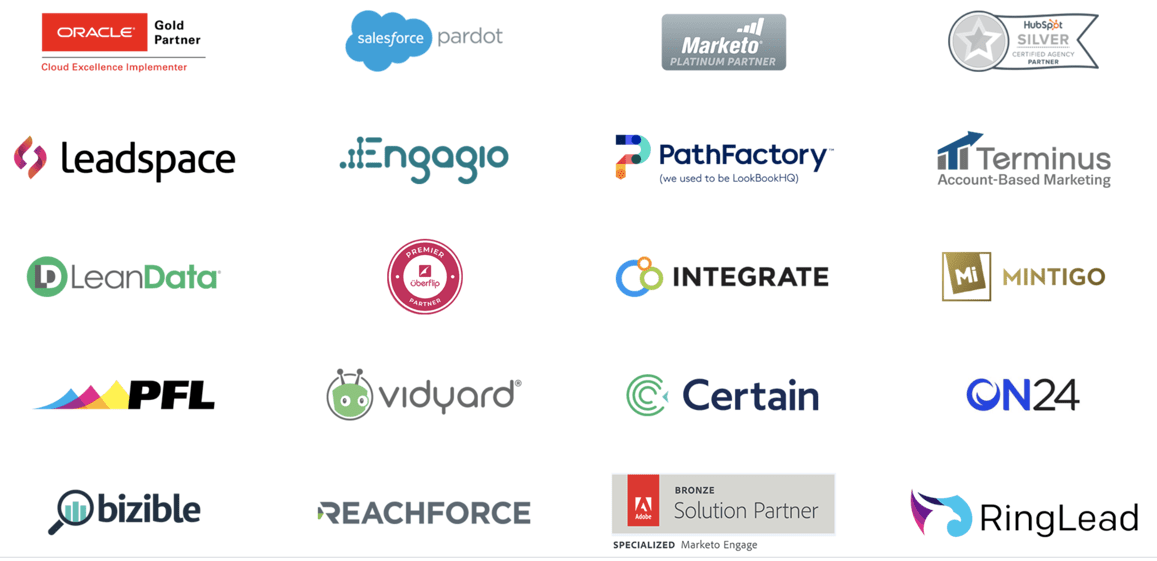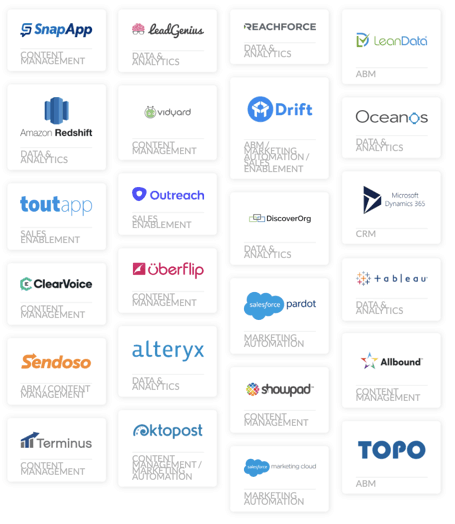When I was an enterprise account executive at Marketo, I worked very closely with my customers. Many of them would ask for guidance on how to select the most appropriate marketing operations (MOps) agency partner based on their needs.
Additionally, I also had to help manage the fallout when my customers made a less-than-optimal agency selection. From first-hand experience, I came to understand — and appreciate — just how much impact an agency selection has, not only financially but on the success of the project outcome.
Marketing operations has quickly become a strategically important function in many enterprise organizations and your agency selection can make — or break — you.
Marketing operations, or the ability to effectively leverage technology, develop efficient processes, manage data, and formulate actionable insights from data analytics, is foundational to staying competitive and driving growth. Because of the importance and expertise required, many brands turn to MOps agencies for guidance, and, oftentimes, execution.
Navigating the agency universe can be overwhelming. What should you be looking for and how do you know which agency is right for you? Here’s how I would advise my customers.
Marketing Operations vs. Marketing Agency — What’s the Difference?
Let’s first understand the difference in agency types. A marketing operations agency is one that focuses solely on MOps and the primary function of MOps, or data, process, technology, and analytics. In contrast, a traditional marketing agency primarily focuses on developing campaign strategies.
If I were to compare both to building a house, the MOps agency is the foundation and the marketing agency is the curb appeal — the “pretty” stuff but not focused on structural integrity.
The profiles of a MOps agency and a marketing agency are also very distinct. The creative marketing types won’t have the expertise required to advise on the above four elements and the technical MOps person typically doesn’t have the creative juices to make campaign strategy recommendations.
Thus, it’s important to define what your needs are, so you can select the agency to best meet your objectives.
For example, at MERGE, we work with many large enterprise clients who come to us asking for campaign strategy assistance and we politely decline the business, referring them to more traditional marketing agencies. It’s not what we do and it’s very rare, if not impossible, to find a firm that does both well.
What Qualities Should I Look for in a Marketing Operations Agency?
According to Scott Brinker’s 2023 MarTech landscape, there are over 11,000 different marketing technologies available to marketers, with the options increasing every year. It’s easy to get distracted by it all; the last thing you want to do is hire an agency that tries to be everything to everyone. Why? Because consultant knowledge will run wide but not deep.
When an agency’s consultants have to be cross-trained on many different technologies, they aren’t usually deep experts on any one single technology. For further illustration, just look at the strategies of major airlines.
Instead of multiple aircraft in their fleet, airlines are shifting to a single aircraft model, so pilots know exactly how a plane will perform in a variety of conditions, thereby improving efficiency and mitigating risk during the journey.
The same is true for MOps agency consultants.
Agency Depth and Breadth of Expertise
To find out if the agency you’re considering is spreading itself too thin, search their website for the “Partners” section.
Examples of partner pages with just too many partner logos:


As you’re perusing their website, don’t be fooled by an agency’s size. While it’s reasonable to think that an agency with 1,000+ employees could possibly have deep expertise in multiple technologies, to stay profitable, the agency is likely also offering multiple services — marketing operations is one of many services.
Specialty or boutique marketing operations agencies are typically less than 150 employees, offering a narrow tech niche but deep expertise within that niche.
Quality Assurance (QA) Process
Quality assurance and documentation are where the rubber meets the road for a MOps agency. Everyone makes mistakes.
It’s natural and is guaranteed to occur, no matter the agency. However, a thorough QA process can significantly reduce, or even eliminate, costly mistakes and potential delays to your project.
There are multiple ways to validate that the agency you’re considering has a thorough QA process, such as requesting to view testing scripts, or asking for an overview of their methodology. But the best way to validate is through customer references. Always ask your agency prospects for customer references and be sure to ask them the following:
- On a scale of 1-10, how would you rate the agency’s QA process?
- Would you mind helping me better understand what their QA process looks like?
- Are there any situations that have occurred where their QA process has failed you?
- When a mistake happens, how does your agency handle it?
Project Management Expertise
Marketing operations is constantly moving and changing; you want confidence that your project will be executed on time, within budget, and with enough time built in for proper QA testing. In your agency evaluations, be sure to inquire how your project will be managed and status communicated — and beware of project management “smoke and mirrors.”
Many agencies will charge their customers hours for project management, but they have no formal process for actually managing your project. In other words, they’re letting the technical consultant “project manage” through an internally-defined process, or worse yet, they’re not doing any project management at all.
This is an unacceptable and dangerous practice for any company that truly cares about timelines, budget, and quality of deliverables. Effective project management is equally essential to consultant expertise — insist on both!
To properly assess your MOPS agency’s ability in managing client engagements, ask them the following questions:
- Please explain your project management methodology.
- What project management technologies do you use?
- Will I have a “named” project manager?
- If yes, how many years of experience does this project manager have and is he or she certified by a recognized project management association?
- How often can I expect my project manager to keep me updated on the status of my project?
Finally, in your customer reference calls, candidly discuss:
- On a scale of 1-10, how would you rate the agency’s project management practices?
- Did you have a dedicated project manager? Find out if it’s the same person you’ll be assigned as well, for context.
- How frequently did your project manager communicate with you?
- Did they complete their project(s) on time?
- Were you informed of additional costs or changes to the project scope in advance?
Vendor Reputation
The Adobe partner portal is full of agency providers but there are two reputations that matter in the Marketo world: customer references and Adobe references.
Customer references: Your MOps agency should be able to put you on the phone with real, live customers. I recommend that you talk with at least one, but preferably two customers. Who should you ask to speak to?
- Long-Time Customer: An agency customer for two or more years who is able to speak to the good, bad, and the ugly over the course of their engagement.
- New Customer: This should be someone that has been working with the agency for three to four months. They’ll be able to tell you, because it’s fresh, what their onboarding experience was like and whether or not the agency delivered on the promises they made during the sales cycle.
G2 reviews: This third-party site is the leader in providing credible reviews on B2B software and service providers. Comments can be named or submitted anonymously and can give you valuable insight into any agency partner you are considering.
Be sure to review customer feedback on all potential agency partners as part of your selection due diligence!
Adobe references: Every enterprise Marketo customer has an Account Executive (AE) and a Customer Success Manager (CSM) assigned. Your Marketo contacts are excellent resources regarding agencies. Remember, both the AE and the CSM work with lots of customers just like you, so they have seen a wide variety of agencies in their accounts and likely know the good from the bad.
Pricing
This will be situational, but pricing can sometimes be a deciding factor as well. Remember the old adage: you get what you pay for. The cheapest agency is definitely not who you want helping you out with something as important as a Marketo implementation or optimization project. There’s just too much at stake.
In terms of actual dollars, agency rates typically run in the neighborhood of $190-275/hr, depending on the work you’ve requested and resource types needed. You should question anything less than $190/hour, unless you’re making a high-volume hours purchase (>1,000 hours.)
Even then, it’s unlikely the rate would drop below $170/hour — if it does, it could indicate lesser experienced staff will be assigned to your project. Beware of low-cost consultants as your project may ultimately cost more in total hours billed than if you had a more experienced (and efficient!) consultant working at a higher hourly rate.
Closing Words of Wisdom
Choosing an agency partner can be an overwhelming process, but you can quickly narrow your options by focusing on what matters most:
- Depth of expertise
- Quality assurance
- Project management
- Agency reputation
Still conflicted by your options? Contact us — we’re happy to discuss your project needs and the agencies you are considering. There’s just too much at stake to “roll the dice” when it comes to executing on your project and choosing an agency partner who truly has the capacity to bring your vision to life.
